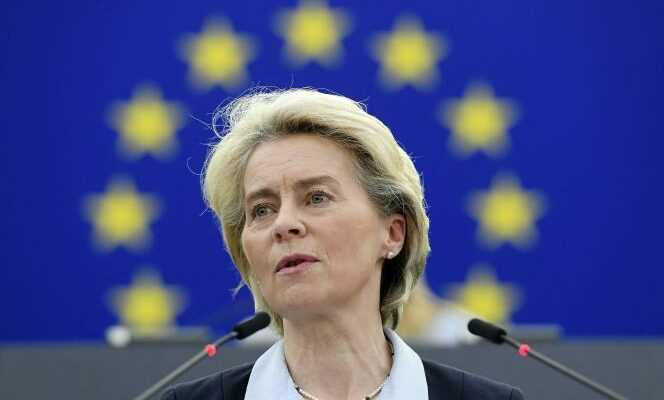Ursula von der Leyen, President of the European Commission, did not want to arrive empty-handed in kyiv on Friday April 8, where she was to meet Ukrainian President Volodymyr Zelensky. “By a happy coincidence”, comments a diplomat, the information leaked on Thursday, according to which the community executive would give its opinion in June on the admissibility of kyiv’s request to join the European Union (EU). Clearly, the Commission will then decide whether or not Ukraine can be an official candidate.
Where it usually takes between fifteen and eighteen months, this time the Commission, if it sticks to this timetable, will have taken barely ninety days and sent a political signal to Ukraine that its case deserves preferential treatment. In reality, this step will only launch a procedure that will last for years, during which the country will have to align itself with European standards.
More concretely, Ursula von der Leyen will be able to claim from the Ukrainian president the fifth package of sanctions that the Twenty-Seven adopted unanimously on Thursday evening. First of all, they decided on an embargo on Russian coal, a politically symbolic measure because it is the first concerning energy and because a fortnight ago it was unthinkable. But this “will not really weaken the Russian economy”judge Simone Tagliapietra, of the Bruegel think tank. “Europeans pay 15 million euros a day to buy Russian coal. For Russian gas and oil it is 850 million”argues the researcher.
Member states have also decided to continue to attack the Russian financial sector by ending transactions with four of its major banks. They will also deny Russian ships (except those carrying agricultural and food products, humanitarian aid and energy) access to EU ports and close their borders to Russian and Belarusian trucks.
Delicate exercise
Moreover, in order to weaken its industrial base, the Europeans will no longer export certain strategic goods to Russia, such as quantum computers or semiconductors. They thus deprive themselves of 10 billion euros in annual revenue, or just over 10% of their exports to Russia. The Twenty-Seven had already stopped selling their luxury goods there, thus giving up 3.5 billion a year.
On the purchases of Russian goods, things are less simple, as the Europeans have multiplied their dependence on Moscow. While in 2021 they spent 159 billion euros on imports from Russia, they decided on Thursday to no longer buy wood, cement, caviar and vodka from it (for 5.5 billion euros per year). In recent weeks, they had also stopped importing certain steel products for an annual amount of 3.3 billion.
You have 56.36% of this article left to read. The following is for subscribers only.
